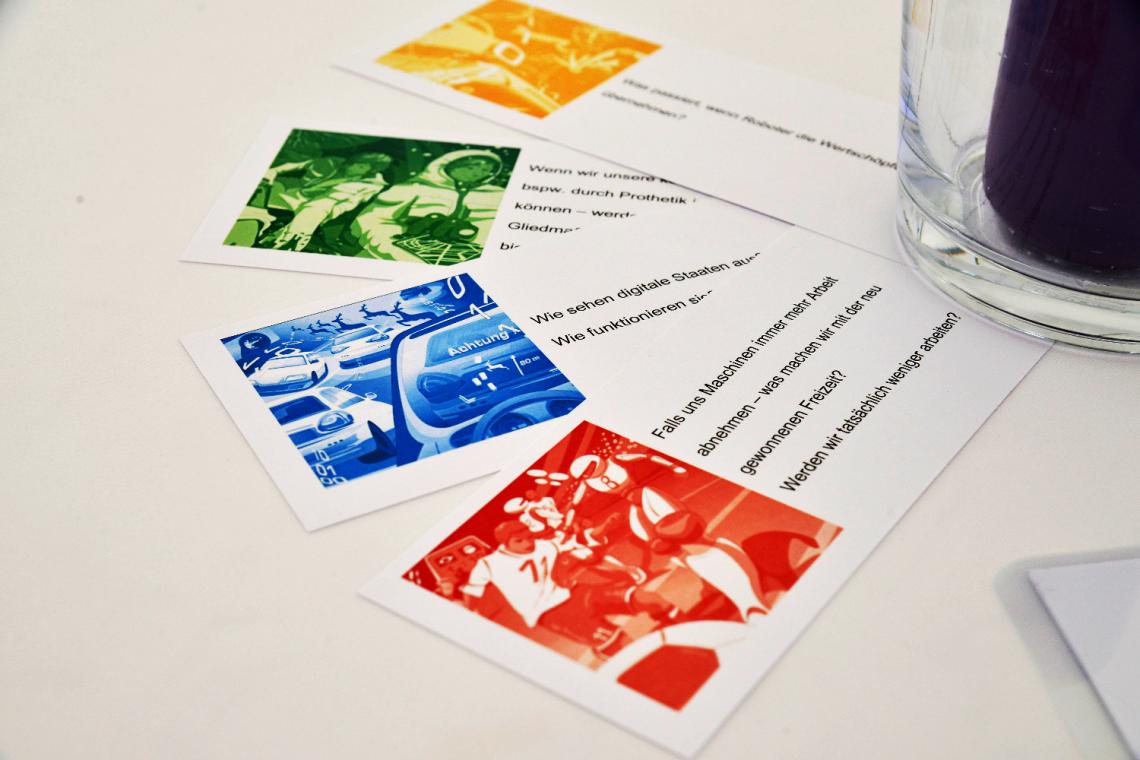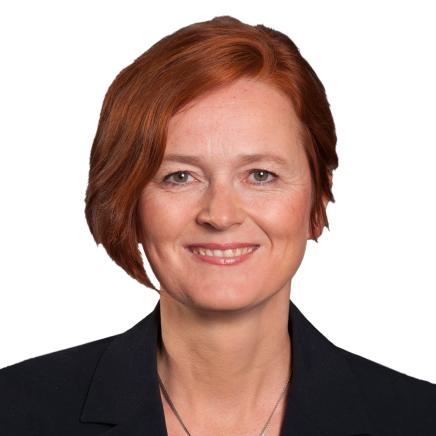
Will electro mobility get off the ground? How liveable are smart cities? Will we still get ill in the future? We have lots of questions about the future. Researchers from a very wide range of disciplines in the fields of natural and social sciences are working on providing answers to these questions. As they do so, they are regularly finding more questions to ask. Artists also like to dream about the future. They captivate audiences with their exciting science fiction novels and films. VDI/VDE Innovation + Technik GmbH (VDI/VDE-IT) is bringing these two spheres – science and the arts – together.
Artists have always been providing ideas for innovations and visions of the future. In the 19th century, it was the novels of a certain Mr Jules Verne. In the 20th century, it was TV series and films such as Star Trek and Star Wars. Their futuristic visions for communications, for example, have since become a reality with our smart phones and tablet PCs. Science fiction has long been a source of inspiration for scientists, engineers and inventors who are excited about such visions and how they could be implemented in real life. Even today, visions for the future and for technology can play an important role in developing tomorrow’s technologies and utilising them for everyday purposes.
Science fiction is where technology and the arts intersect and VDI/VDE-IT is actively promoting dialogue between them by supporting the second ‘PAN-Branchentreffen der Phantastik’ (PAN speculative fiction congress). The congress is organised by PAN e.V. (a non-profit association that provides a network for speculative fiction authors) and is taking place in Berlin from 20–22 April. Furthermore, Dr Volker Wittpahl, Head of the Institute for Innovation and Technology at VDI/VDE-IT, acted as patron of the ‘Münchner Science & Fiction Festival – Art and Science’ for the first time this year. The event is being held in Munich from 28–30 April.
VDI/VDE-IT assists with researching and developing forward-looking technology in a great many projects. This also involves recognising social and technological trends at an early stage, gaining an understanding of the possible consequences of these trends and applying them to the existing state of affairs. Consideration is given to the various facets of digitalisation, including the issue of ensuring that a responsible form of collaboration between people and modern technology is established. Achieving this responsible collaboration requires the synthesis of key technologies, such as ICT, robotics, cognitive science, engineering, design, psychology and social sciences. It is not unusual for these disciplines to overlap with and find inspiration from the arts. VDI/VDE-IT is therefore sponsoring the artist Moritz Simon Geist to perform at the Science & Fiction Festival with ‘SONIC ROBOTS’, his robotic music machines.
The ‘Münchner Science & Fiction Festival – Art and Science’ was founded in 2014 and is held annually at the ‘Einstein Kultur’ cultural centre in Haidhausen, Munich. The festival is a platform that facilitates networking among international and local artists and scientists. It does so by putting on exhibitions, music events, readings, performances and film screenings, as well as its own innovative event formats such as the Science Fiction Slam. This year, the festival is taking place from 28–30 April.
The ‘Phantastische Gipfeltreffen’ (speculative fiction summit) is the annual summit for the 80+ paying members of the PAN e.V. association. It features readings, workshops and discussion groups. The tagline this year is ‘A hitchhiker’s guide to speculative fiction – transcending the borders of media and content’ and the event will take place from 20–22 April on the campus of the German Language School (GLS) in Prenzlauer Berg, Berlin.
